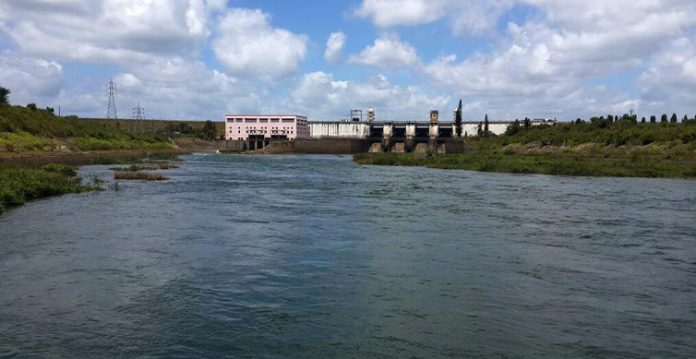The Cauvery river takes birth in Karnataka and flows through Tamil Nadu. The Pennar too takes birth in Karnataka and traverses Andhra Pradesh, on its way to the East Coast. The Godavari, India’s third largest river, is born in Maharashtra, passes through Telangana, Chattisgarh, and Andhra Pradesh before joining the Bay of Bengal. Similarly, the Krishna river, also originating in Maharashtra, passes through Karnataka, Telangana, and Andhra Pradesh. However, with its waters fully exploited, there is hardly any water left in the Krishna by the time it reaches its journey’s end. It’s a similar situation so far as the Cauvery and Pennar rivers are concerned.
At the moment, Godavari is the only river with surplus water reserves. And the river-linking plans hinge upon using its waters to replenish the remaining rivers in the peninsula. According to the National Water Development Agency, out of an estimated 324 tmcft of surplus Godavari waters in Chhattisgarh, 247 tmcft water can be diverted to the Cauvery through the Krishna and Penna rivers.
As predominantly agrarian states, and coupled with growing drinking water needs of urban populations, the clamour for the ‘rightful’ share of river waters has been growing with every year. Under the circumstance, neither Andhra Pradesh, Telangana or Chattisgarh seem keen on letting go of their potential claims to the Godavari rivers.
In the relatively new state of Telangana, Chief Minister K. Chandrasekhar Rao literally scoffed at the proposal on the day it was announced in the Union Budget. “A Bachawat Tribunal verdict says that once Godavari enters the Telugu States, they have all rights on its waters.” he reminded.
In Andhra Pradesh too, the ruling as well as opposition parties have given a tepid response to the proposal.
Over the years, the interstate water wars in south India have roused passions, incited violence, led to courtroom battles, and resulted in setting up of tribunals. The most bitter water wars are probably the ones between Karnataka and Tamil Nadu over the Cauvery waters, several years ago.
In the past, Karnataka has also had tussles with erstwhile Andhra Pradesh over Krishna river water sharing. In the recent past, new neighbours, Andhra Pradesh and Telangana have been sparring over their rights on previously common river waters.
Predictably, the BJP-ruled Karnataka government is treading cautiously on the issue. It is stuck between party loyalties and local sentiments. Chief minister Basavaraj Bommai has planned to reach out to the party’s central leadership over the state’s concerns. However, smelling an opportunity to capitalise on emotions, the opposition Congress party has begun cornering the state government on the issue. Congress LOP and former Chief Minister S. Siddaramaiah went so far as accusing the finance minister of siding with Tamil Nadu because she hails from there. Incidentally, the union minister is a Rajya Sabha member representative from Karnataka.
Talking to IANS, water expert Prof C. Narasimhappa said that the river interlinking project will not benefit Karnataka at all. The interlinking of rivers will benefit Tamil Nadu state and Andhra Pradesh will be benefited to an extent. Andhra Pradesh has interlinked River Godavari to River Krishna. The interlinking of projects would benefit Tamil Nadu to a maximum extent, he stated.
While the draft Detailed Project Reports (DPRs) have already been finalised as early as 2020, things will move on the ground only after the stakeholder states reach a consensus. Captain Raja Ram, a Karnataka water rights activist feels that Karnataka should use this opportunity to safeguard its interests. “Karnataka should see to it that its share is announced before the DPR is done for interlinking of rivers. The basic idea of interlinking of rivers is to provide water from river basins which have surplus water to deficit basins. Our state should not sit quietly but demand and get our share of water otherwise we should not agree to the project.”
At the moment, Tamil Nadu is the only southern state to have welcomed the announcement. Chief Minister M.K. Stalin has been demanding the Centre for fast-tracking river-linking proposals.
Pointing to the strong Tamil Nadu lobbying, political observers feel that the entire river-linking exercise seems to be tailored for helping the state. However, with none of the other states willing to let go of their rights in view of their own future requirements, river-linking may not be so easy to execute either.
Meanwhile, concerns have been raised in other quarters, especially on the ecological impact river-linking could lead to.
Speaking to IANS, Prof Kshitij Urs at the National Law School University of India, said: “Building small deviations like canals may not have much of an impact, but diverting an entire river’s natural course can have potentially disastrous consequences for the surrounding eco-system. It could lead to adverse impact at the river source as well as the end-points.”
(This story has been sourced from a third-party syndicated feed, agencies. Raavi Media accepts no responsibility or liability for the dependability, trustworthiness, reliability, and data of the text. Raavi Media management/ythisnews.com reserves the sole right to alter, delete or remove (without notice) the content at its absolute discretion for any reason whatsoever.)







